Services
Physiotherapy
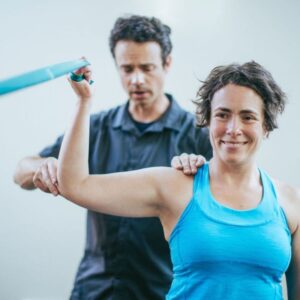
Physiotherapy at Keystone Health can consist of:
- Sport Specific Performance and Rehabilitation Training
- Preoperative and Postoperative Rehabilitation and Guidance
- Injury Prevention and Screening Programs
- Concussion Rehabilitation
- Manual Therapy
- Modalities/ Therapeutic machines
- Acupuncture
- Therapeutic Ultrasound
- Electrotherapy Agents
- Workplace ergonomics
- Prophylactic and Athletic Taping
- Running Assessment
- Online Tele-Rehab
The relationship you build with your therapist is a critical piece for successful outcomes. The bond between therapist and patient contributes 30% of the factors leading to success in therapy [M.J. Lambert. Handbook of Psychotherapy Integration, 1992].
The physiotherapists at Keystone Health will sit down and get to know you, the individual. The therapist needs to learn and understand who you are, what brought you in to see them and what you expect from their services. Then, together, you and your therapist can find the best course of treatment.
Service Providers:
Michele Bourgois PT, Shota Ida PT, Emma Preston PT, Fraser Sprigings PT, Shannon Morton PT,
Naturopathic Medicine
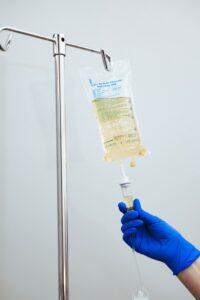
Naturopathic medicine is a form of primary care that treats the underlying cause of disease; it is the art and science of supporting the natural healing processes of the patient through the removal of any mental, emotional and physical obstacles to cure. It is the prevention, diagnosis, and treatment of acute and chronic health conditions; and it is the promotion of well-being using therapeutics that support or enhance a patient’s overall health.
In BC, naturopathic physicians (NDs) are licensed primary care providers. They are trained as general practitioners and work to provide integrative medicine with our conventional system, providing a full range of diagnostic tests and individualized, evidence based therapies.
Services we offer:
- Clinical nutrition
- Botanical Medicine
- Acupuncture
- Nutraceuticals
- Physical Therapy
- Cold Laser (LLLT Theralase)
- Neural Therapy
- Myofascial injection therapy (trigger point injections)
- Prolotherapy/PRP
- IV and IM nutrient therapy
- Advanced lab testing (see below)
- IgE Skin Prick Allergy Testing
- Prescription medication
Advanced lab testing:
- SIBO (small intestinal bacterial overgrowth)
- Food sensitivity testing
- Comprehensive stool / microbiome analysis
- DUTCH Hormone testing
- Vitamin D3 testing
- Nutritional deficiencies
- Conventional serum blood tests (Lifelabs and Valley Medical Labs)
Acute and chronic conditions treated:
- Digestive conditions (IBS, IBD, GERD, food sensitivities, microbiome dysbiosis)
- Post-Concussion (TBI)
- Fatigue ~ Burnout
- Joint pain and injuries
- Sleep ~ Mood Disorders
- Hormonal conditions (PMS, PCOS, endometriosis)
- Thyroid conditions
- Perimenopause through post-menopause
- Pediatric concerns
- Autoimmune disorders
- Skin conditions (eczema, psoriasis, chronic urticaria)
- Allergies
- Topical steroid withdrawal
- Nutritional deficiencies
- Acute and Chronic infections
Service Providers:
Manual Osteopathy

Manual Osteopathic Therapy is a gentle, hands-on manual treatment that looks at the way the body functions as whole, rather than viewing its parts or symptoms separately (i.e. a sore shoulder or a neck pain).
The goal of osteopathy is to restore that proper balance and function, allowing your body to heal through its own natural processes. It works to stabilize your nervous, circulatory and lymphatic systems, improving your range of motion and relieving discomfort or other symptoms.
The techniques include:
- Osteoarticular techniques (structural alignment)
- Myofascial release
- Craniosacral techniques
- Visceral manipulation (organ release)
Common conditions treated with osteopathy include:
- Neck and back pain
- Sciatica
- Headaches and migraines
- Chronic fatigue and pain
- Plantar fasciitis
- Carpal tunnel syndrome
- Frozen shoulder
- Scoliosis
- Whiplash
- Post-operative pain or adhesions
- Cramps, nausea and digestion issues
- Respiratory problems (i.e. asthma)
- Pelvic health issues
- Repetitive strain injury and postural related pain
- Mental health and stress
In addition to treating current conditions, osteopathy can also be used as a method of injury prevention and in the maintenance of good health.
Service Provider:
Sarah Stephen MOT & RMT, Didié Hamel-Jolette MOT, CAT(C), CSCS
Pelvic Health Physiotherapy
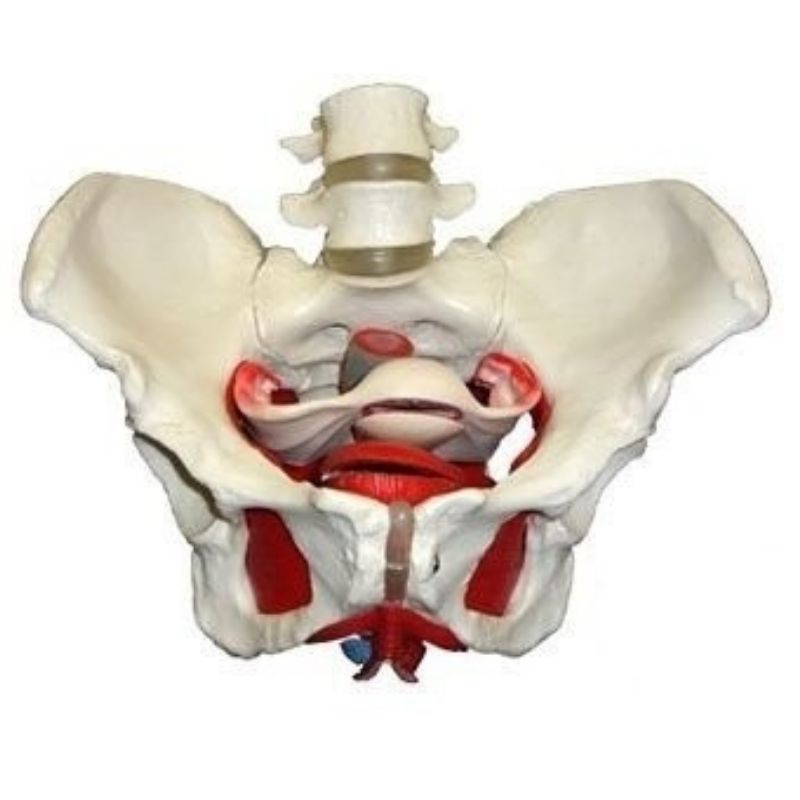
What is it:
Pelvic health physiotherapy is a specialized area of physiotherapy that focuses on the treatment of conditions affecting the pelvic floor muscles, which support the bladder, uterus, and rectum. Pelvic health physiotherapy is also known as women’s health physiotherapy or pelvic floor physiotherapy.
The pelvic floor muscles can become weakened, overactive or dysfunctional, leading to a variety of conditions such as incontinence, pelvic pain, prolapse, sexual dysfunction, and pregnancy-related musculoskeletal issues. Pelvic health physiotherapy uses a combination of education, manual therapy, exercises, and biofeedback to improve the function of the pelvic floor muscles and alleviate symptoms.
During a pelvic health physiotherapy session, the therapist will conduct a comprehensive assessment of the pelvic floor muscles and surrounding structures. This may involve an internal examination, where the therapist assesses the strength, tone, and coordination of the pelvic floor muscles using their fingers.
Based on the assessment findings, the therapist will develop an individualized treatment plan tailored to the patient’s specific needs. Treatment may include exercises to improve pelvic floor muscle strength and coordination, biofeedback to improve awareness and control of the pelvic floor muscles, and manual therapy techniques to release tight or overactive muscles.
Pelvic health physiotherapy is not just limited to women, as men can also benefit from this therapy for issues such as urinary incontinence, erectile dysfunction, and pelvic pain. Pelvic health physiotherapy can help improve quality of life, restore function, and empower individuals to take control of their pelvic health.
Common Conditions:
Pelvic health physiotherapy can treat a variety of conditions related to the pelvic floor muscles, including:
- Urinary incontinence: Pelvic health physiotherapy can help improve the strength and coordination of the pelvic floor muscles, which can reduce or eliminate urinary incontinence.
- Pelvic pain: Pelvic health physiotherapy can help relieve pain associated with conditions such as endometriosis, interstitial cystitis, and vulvodynia.
- Prolapse: Pelvic health physiotherapy can help improve the support and function of the pelvic floor muscles to reduce the symptoms of prolapse.
- Sexual dysfunction: Pelvic health physiotherapy can help improve sexual function by addressing issues such as pain with intercourse, decreased sensitivity, and erectile dysfunction.
- Pregnancy and postpartum related musculoskeletal issues: Pelvic health physiotherapy can help address issues such as diastasis recti, pelvic girdle pain, and pelvic floor dysfunction during and after pregnancy.
- Bowel dysfunction: Pelvic health physiotherapy can help improve bowel function by addressing issues such as fecal incontinence and constipation.
Overall, pelvic health physiotherapy can improve quality of life by addressing the physical and emotional impacts of pelvic floor dysfunction. It is important to seek treatment from a qualified pelvic health physiotherapist to ensure safe and effective management of these conditions.
What to expect:
During your first pelvic health physiotherapy session, you can expect the therapist to take a detailed medical history and ask about your symptoms and goals for treatment. The therapist may also perform a physical assessment, which may include an internal examination of the pelvic floor muscles to assess muscle strength, tone, and coordination. However, the therapist should always obtain your informed consent before proceeding with an internal examination, and you have the right to decline if you do not feel comfortable.
During the internal examination, the therapist will use a gloved finger to assess the strength, tone, and coordination of the pelvic floor muscles. This may involve asking you to contract and relax your muscles while the therapist provides feedback and guidance.
Following the assessment, the therapist will discuss the findings and develop an individualised treatment plan based on your needs and goals. The treatment plan may include exercises to improve muscle strength and coordination, lifestyle modifications, manual therapy techniques, and/or biofeedback.
The therapist may also provide education on pelvic health, including information about anatomy, posture, and how to perform exercises correctly. You may also receive advice on managing symptoms and preventing future problems.
Overall, the first pelvic health physiotherapy session is focused on assessing your symptoms and developing a personalised treatment plan to meet your specific needs. The therapist will work with you to set realistic goals and empower you to take control of your pelvic health.
Service Providers:
Registered Massage Therapy

Massage therapy involves hands-on manipulation of the body’s soft tissues by applying fixed or movable pressure, holding, and/or causing movement to the body.
Massage therapy has a therapeutic effect by acting on the muscular, nervous and circulatory systems to maintain and improve physical function, promote relaxation, stress relief and alleviate pain. By increasing blood circulation to the body, oxygen and nutrients to tissue is enhanced, allowing massage to promote the body’s natural healing process.
Treatment can always be modified or adjusted at any time based on your comfort level and health goals.
Service Provider:
Athletic Therapy
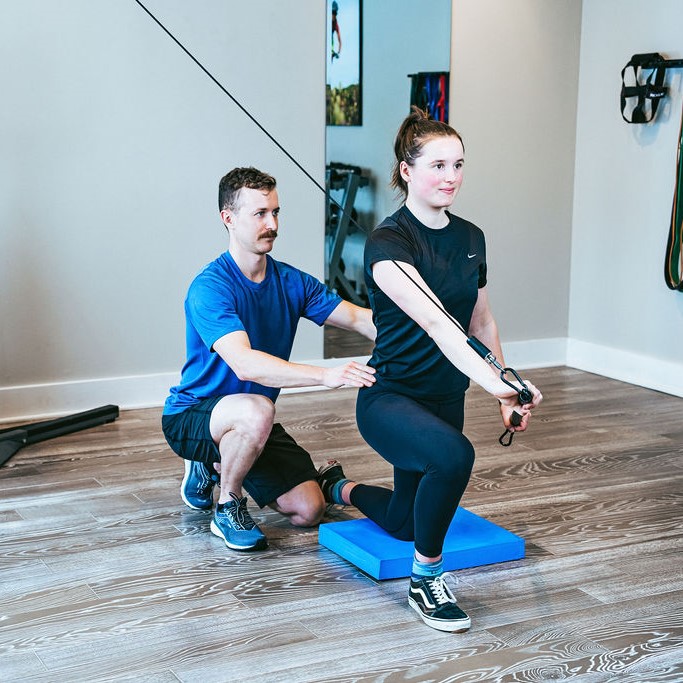
Athletic therapy uses sports medicine approach and specializes in the prevention, immediate care, hands-on treatment and rehabilitation of musculoskeletal injuries as related to physical activity and athletics.
Athletic therapy at Keystone Health can consist of:
- Acute and Chronic Injury Assessment
- Sport Specific Movement Analysis
- Concussion Assessment and Rehabilitation
- Reconditioning and Injury Prevention Exercise Program
- Sport Specific Training Program and Coaching
- Exercise Rehabilitation
- Manual Therapy
- Therapeutic Modalities
- Prophylactic and Athletic Taping
- Running Assessment
- Online Tele-Rehab
The athletic therapist at Keystone Health will take time to get to know you and understand you in a holistic manner. They will work hand-in-hand with you to find the best solutions, have you back to your beloved activities safely and help you to become more resilient.
What is the difference between physiotherapy and athletic therapy?
There are many similarities between physiotherapists and athletic therapists. Both are using therapeutic modalities, hands-on techniques and supportive adjunct and prescribing rehabilitative, injury prevention and reconditioning exercise programs.
The major differentiating factor is the focus of studies. Physiotherapy studies focus on neurology, cardiology/cardiopulmonary and orthopedics and have the ability to further focus on manual therapies (such as acupuncture), pelvic floor, vestibular and other skills. Athletic therapy studies focus mainly on sport medicine, immediate care and exercises. They can also further focus on various manual therapy skills and rehabilitative exercise methodologies.
Physiotherapy and Athletic Therapy often work together, along with other healthcare professionals, to help you feel better, promote healing and achieve your goals.
Service Provider:
Counselling
Meet Lindsey and see how Keystone Health can provide an integrated or exclusively focus approach to improve mental well being.
At Keystone Health you will find a safe space to work with a counsellor on present or historical concerns. Together we can figure out how previously learned protective strategies no longer serve a useful purpose, and ways to enhance your lived experience, now and in the future. Areas of concern include:
- Addiction
- Anxiety
- Coping skills
- Chronic illness
- Depression
- Disordered eating
- Gender identity
- Grief and loss
- Injury recovery
- Life changes
- Menopause, perimenopause, and PMDD
- Performance optimization
- Phobias
- PTSD and cPTSD
- Relationships
- Sexual orientation
- Work stress
Service Providers:
Nutrition

Nutrition services by a dietitian start with a thorough assessment of your concerns, medical history, current nutrition and lifestyle habits, and a discussion of your health goals. At Keystone health, your dietitian will get to know you, and will include you in creating a personalized plan. Change takes time, and you will have support along the way. Common reasons for nutrition therapy include:
- Repairing relationship with food
- Freedom from “dieting”
- Nutritional imbalances
- Plant-based eating
- Diabetes
- Food Allergies
- Feeding babies and toddlers
- Preconception
- Pregnancy
- Polycystic ovarian syndrome
- Fueling athletic performance
- Meal planning
- Body image
- Weight gain or loss
- Heart disease
- High cholesterol
- Gout
Service Providers:
Jill Middlemiss – Registered Dietitian, Certified Diabetes Educator
Occupational Therapy
Occupational Therapy (OT) is a holistic approach to improving an individual’s ability to engage in everyday activities, also known as occupations. Unlike traditional medical treatments that often focus solely on alleviating symptoms, occupational therapy considers the person as a whole, addressing physical, cognitive, emotional, and environmental factors that may affect their ability to function optimally.
At its core, occupational therapy aims to enhance individuals’ independence and quality of life by facilitating their participation in meaningful activities. Whether you’re recovering from an injury, managing a chronic condition, or seeking support for developmental challenges, occupational therapists are trained to assess your unique needs and develop personalized intervention plans to help you achieve your goals.
Key aspects of occupational therapy include:
Functional Rehabilitation: Occupational therapists utilize various therapeutic techniques to improve physical function, such as range of motion exercises, strengthening activities, and ergonomic assessments to optimize work or home environments.
Cognitive Rehabilitation: For individuals experiencing cognitive impairments due to injury or illness, occupational therapists employ cognitive training exercises, memory strategies, and adaptive techniques to enhance cognitive abilities and promote independence in daily activities.
Environmental Modifications: Occupational therapists assess home, work, or community environments to identify barriers and recommend modifications or assistive devices to enhance accessibility and safety.
Activity Analysis and Adaptation: By analyzing the demands of specific activities, occupational therapists can modify tasks or develop alternative strategies to enable individuals to participate in activities meaningful to them, despite limitations or challenges.
Psychosocial Support: Occupational therapy addresses the emotional and psychological aspects of health and well-being, providing coping strategies, stress management techniques, and support for mental health conditions.
Occupational therapy addresses a wide range of conditions and challenges, including but not limited to:
- Musculoskeletal injuries
- Neurological conditions (e.g., stroke, traumatic brain injury)
- Developmental disorders (e.g., autism spectrum disorder, cerebral palsy)
- Mental health conditions (e.g., anxiety, depression)
- Chronic pain syndromes
- Age-related changes and functional decline
- Work-related injuries or disabilities
Through a collaborative and client-centered approach, occupational therapists empower individuals to overcome obstacles, regain independence, and live life to the fullest. Whether you’re seeking rehabilitation, support with daily activities, or strategies for optimizing your health and well-being, occupational therapy can provide valuable assistance tailored to your unique needs and circumstances.
Service Providers:
Shockwave Therapy
Shockwave therapy is a non-invasive treatment that utilizes high-energy pressure waves to stimulate tissue healing, reduce scar tissue, chronic calcifications and provide pain relief.
Common conditions treated with shockwave therapy include:
- Chronic tendinitis
- Plantar fasciitis
- Tennis elbow
- Achilles tendonitis
- Hip bursitis
- Calcific rotator cuff tendinitis
- Patellar Tendonitis
Its non-surgical nature and versatility make it a promising option for individuals seeking effective non-invasive interventions.
Service Providers:
Braces
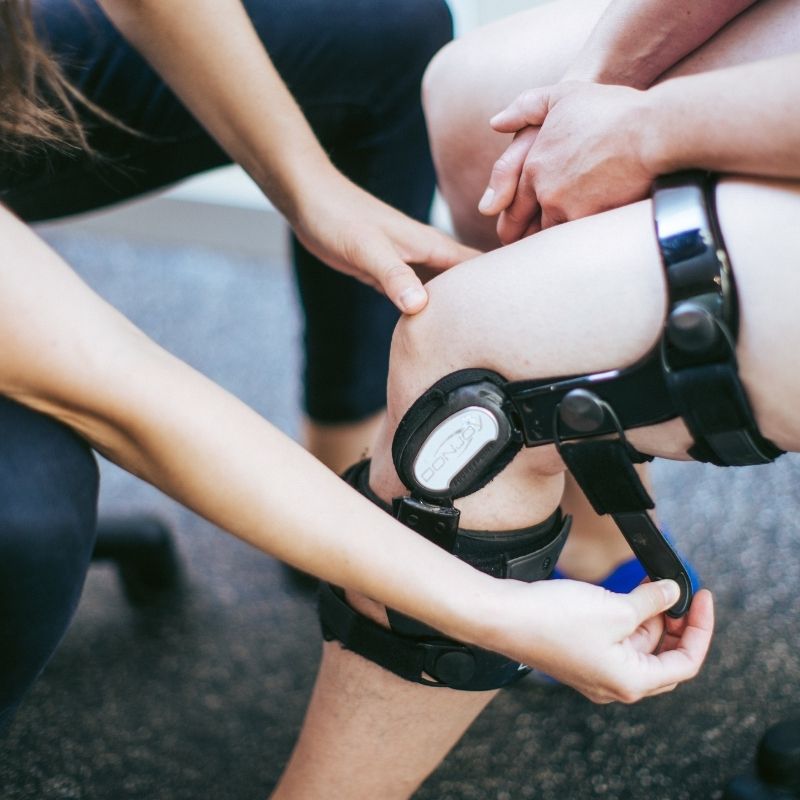
Keystone Health provides off-the-shelf and custom made braces for specific ligament, meniscal and osteoarthritis needs. Our Therapist will provide a detailed mechanical assessment to provide the best brace for your condition and goals.
Keystone Health is a supplier of DonJon, Ossur (CTi), Osskin, Breg and Push lines of knee braces.
Custom braces are covered by most insurance plans.
Service Providers:
Michele Bourgois PT, Shota Ida PT, Emma Preston PT, Fraser Sprigings PT
Orthotics
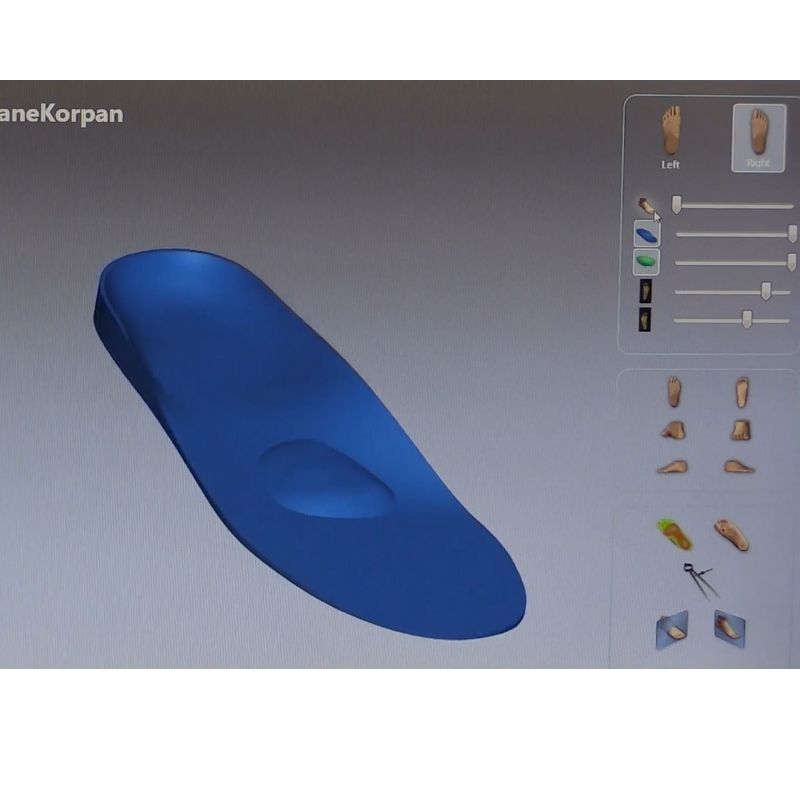
Orthotics optimize the shock absorbency at heel strike and power production with pushing off when walking and running. This optimization and corrective alignment of the lower limb can alleviate several painful conditions of the foot, knee and hip. Orthotics can greatly improve your comfort when standing and your performance for many activities such as downhill and cross-country skiing, cycling and getting lost hiking in the woods (just because you are lost, doesn’t mean your legs have to be sore).
Orthotics are covered by most insurance plans.
Service Providers:
Michele Bourgois PT, Shota Ida PT, Emma Preston PT, Fraser Sprigings PT
Learn more about our Orthotics Services.
Run Assessments
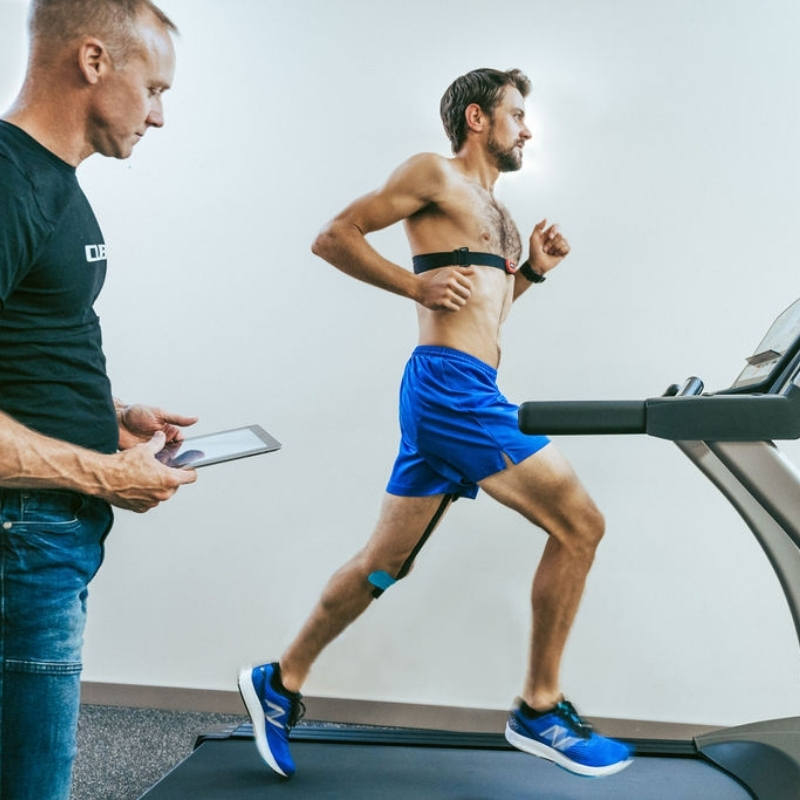
The running assessment is ideally suited for runners who are looking to improve their times and distances, get rid of pain, or are new to running and want to ensure that they are doing things correctly.
The therapist will conduct a video analysis of your running technique. You will have your posture, cadence, vertical displacement and impact assessed. Your shoes will be examined to determine if they are appropriate for your body type, running style and experience. The therapist will also perform special tests assessing range of motion, strength, and movement patterns.
You will gain a thorough understanding of proper running posture, footwear and progressions in running as they relate to you. We will provide corrective exercises that will help maximize running efficiency, making you able to run further and faster with less effort. The corrective exercises will also reduce potential injuries and improve running economy.
Service Providers:
Concussion Management
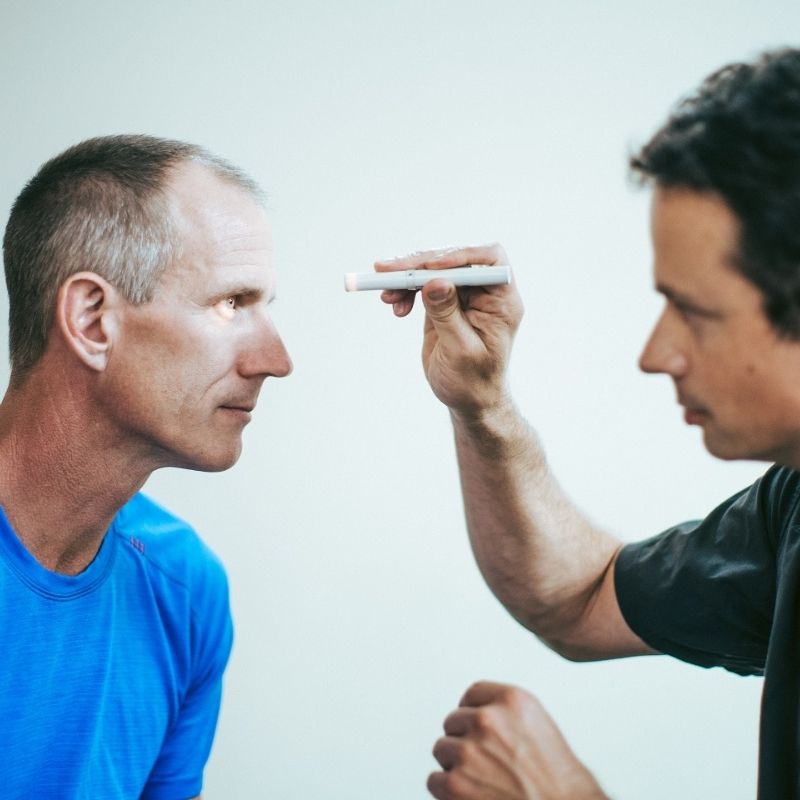
Concussion is a traumatic brain injury induced by forces that are typically experienced with a bump, blow, or jolt to the head or by a hit to the body that causes the head and brain to move rapidly back and forth. This sudden movement can cause the brain to bounce around or twist in the skull, creating chemical changes in the brain and sometimes stretching and damaging brain cells.
At Keystone Health, we are focused on taking the time to diagnose and educate each person who has sustained a concussion. We provide active treatment to relieve symptoms and optimize recovery. Detailed treatment plans guide each concussed person through the stages of recovery and appropriate pacing to help them return to an active lifestyle.
Service Providers:
Michele Bourgois PT, Shota Ida PT, Emma Preston PT, Fraser Sprigings PT, Sarah Stephen RMT, Didié Hamel-Jolette MOT, CAT(C), CSCS, Shannon Morton PT
View our Concussion Care resource library.
Neuro Reconditioning
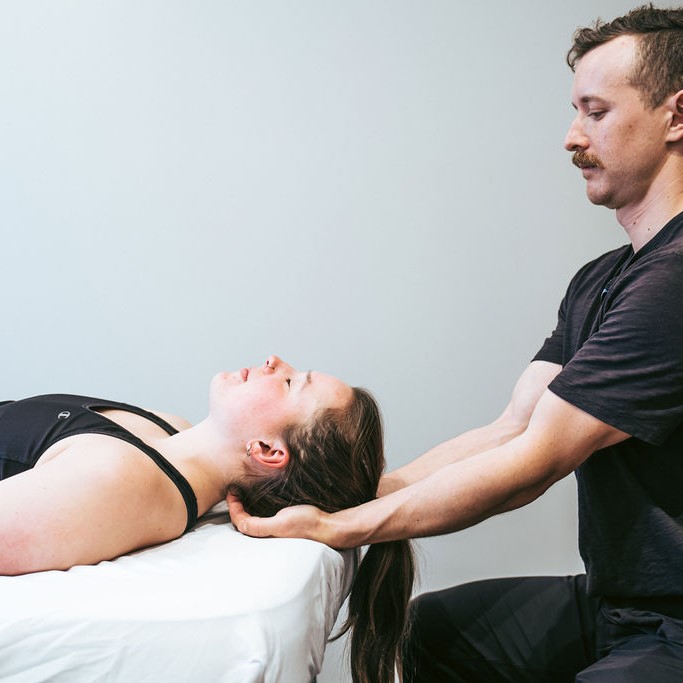
The Neuro Reconditioning approach is a powerful operating system that combines rehabilitation, training and applied neurology. This method caters to individuals seeking to pinpoint the root cause of their pain and movement dysfunction. It is particularly suitable for those who have explored traditional methods with limited success or wish to progress through a neuroscience-based program.
The assessment process encompasses:
- A comprehensive history analysis to uncover what may have altered your movement patterns, posture and nervous system.
- Biomechanical assessment with contextual breakdowns.
- Evaluation of key neurological networks (vision, vestibular, and proprioceptive) to identify threats to the nervous system and true drivers of movement dysfunction
- Video analysis of essential movement attributes for daily life or sports activities.
- Needs analysis to fully comprehend life or performance demands.
- Neuro-biomechanical gait analysis to identify deficits in the higher brain centre.
Follow-ups involve:
- A customized and phased reconditioning program designed in collaboration with your support team.
- Neuroscience-based exercise interventions and progressions.
- Exercise coaching.
What is Applied Neurology?
Applied Neurology is a collection of neuroscience techniques and tools aimed at creating a safer environment for your brain. It helps develop a clearer map of your body and integrates inputs from visual, vestibular, and proprioceptive systems. Incorrect processing of these inputs, known as sensory mismatch, may result in symptoms such as dizziness, pain, muscle tension, motion sickness, decreased force output, poor coordination, anxiety, fatigue, or brain fog.
In essence, everything you have ever felt or done is a result of brain activity!
Service Provider:
Keystone Custom Training Program
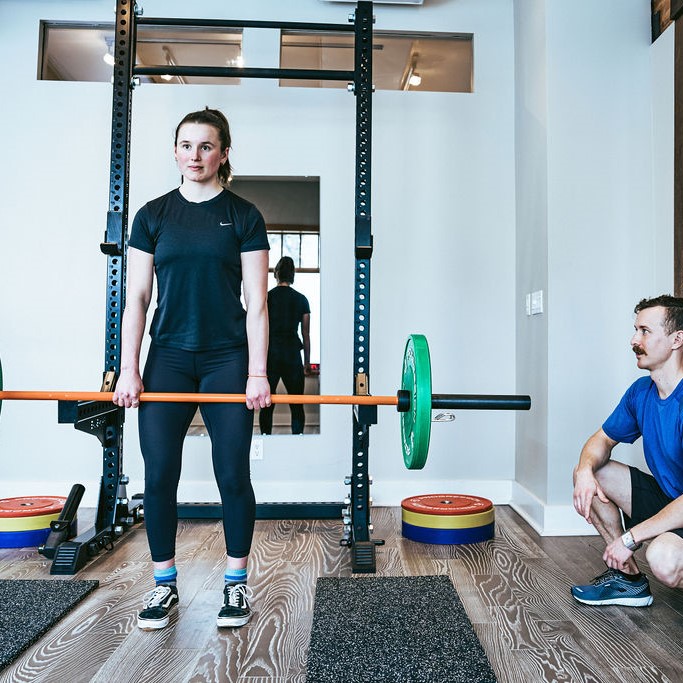
Keystone custom training program’s start with a functional movement assessment to evaluate your fundamental movement abilities and assess how well you can coordinate your movements while breathing efficiently. The therapist performing the assessment will identify any inadequate movement patterns that could make you more prone to injury and any concerns that need to be addressed before beginning a strength and conditioning plan.
After assessing your functional movements, dynamic testing and video analysis will be conducted based on the activity or sport you are training for.
The custom training program will be designed to help you achieve your goals and be realistic with your level of commitment. It usually includes:
- A comprehensive warm-up and movement preparation regimen for the entire body.
- Some corrective movements to help reprogram motor control when needed.
- Either a targeted or full-body strength program based on your training level and frequency. Incorporated into your training program will be various power, speed, and agility exercises that correspond with your primary sport and the stage of training you are undergoing.
- A flexibility routine and recovery strategies to optimize your performance and enable your body to recover post-workout.
This custom training program includes a 60min assessment, an individualized custom programming design, and another 60min session to review the program and ensure proper technique while training.
Service Provider:
Ergonomic Assessments
Specialized ergonomic assessments aim to optimize comfort, productivity, and overall well-being. Like manual osteopathic therapy’s holistic approach, our assessments address physical health, environment, and tasks.
Our goal is to prevent musculoskeletal disorders and enhance quality of life. We conduct comprehensive evaluations of workspaces, analyzing layout, furniture, and body mechanics. Posture and movement analysis help identify issues contributing to discomfort or injury.
We recommend ergonomic adjustments and equipment tailored to your needs, promoting proper posture and reducing strain. Our expertise ensures compliance with safety regulations and long-term well-being.
Benefits of Ergonomic Assessments:
- Prevention: Addressing ergonomic risk factors prevents musculoskeletal disorders like neck and back pain.
- Comfort and Productivity: Adjustments enhance comfort and productivity, reducing discomfort and boosting job satisfaction.
- Rehabilitation Support: Modifications aid rehabilitation and prevent symptom exacerbation for those recovering from injuries or managing conditions.
- Safety Compliance: We ensure a safer work environment through compliance with safety regulations.
Whether you’re seeking injury prevention or aiming to optimize productivity, our ergonomic assessments offer tailored solutions. Let us create a workspace that supports your health and success.
Please call the clinic to book: 250-837-0810
Keystone Health
109 2nd Street E, Revelstoke, BC
509 4th Street E, Revelstoke, BC

